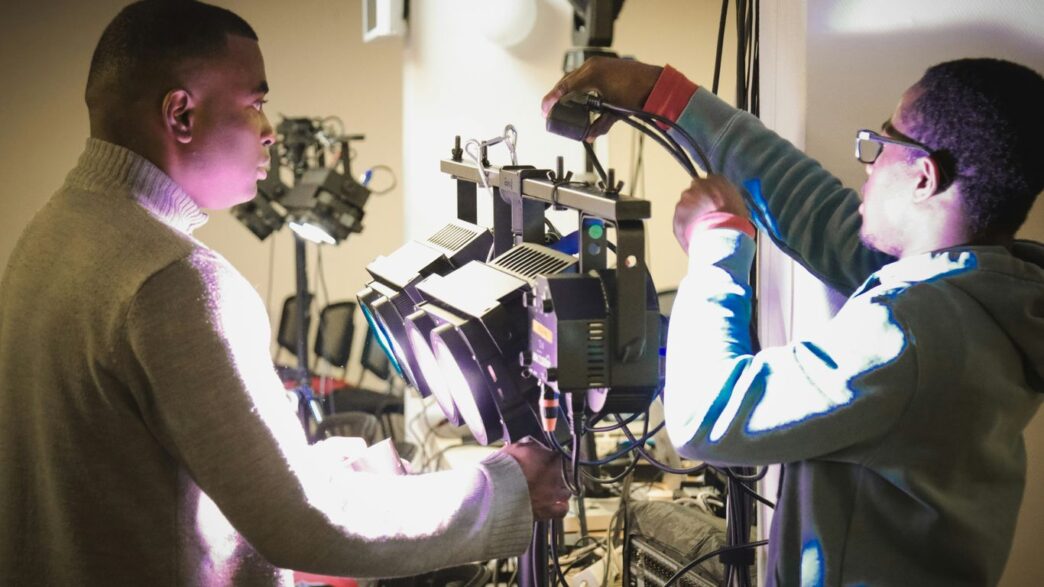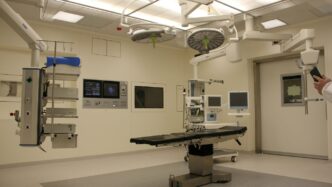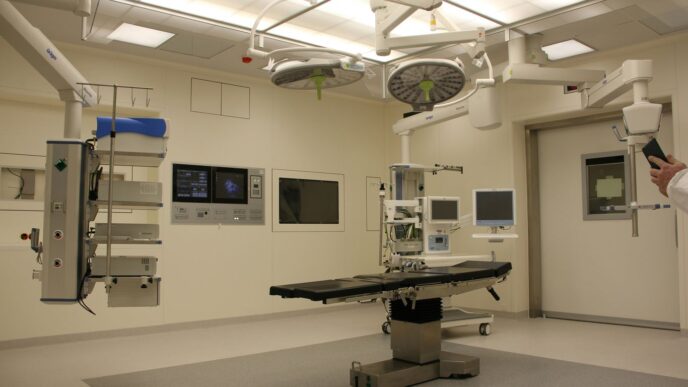Understanding Biomedical Engineering Salary Expectations
So, you’re thinking about a career in biomedical engineering, huh? It’s a field that’s really at the intersection of technology and healthcare, which sounds pretty cool, right? But let’s get down to brass tacks: what kind of money are we talking about, especially as we look ahead to 2025 and beyond? It’s a field that generally offers a solid paycheck, especially when you consider the impact you can make.
Is Biomedical Engineering Salary Worthwhile in 2025?
When you look at the numbers for 2025, biomedical engineering salaries are still looking pretty good, especially in major global hubs. For folks just starting out, you can expect to see starting salaries that are quite competitive. For example, in places like Canada, Ireland, or Germany, new graduates might be looking at annual earnings that translate to over ₹30 lakh. As you gain a few years under your belt, say in mid-level roles focusing on things like medical device design, testing, or clinical technology, those figures can climb to somewhere between ₹50–₹65 lakh, depending a lot on where you are and how much experience you’ve clocked.
For those who decide to go the extra mile and get a master’s degree or pick up some specialized training, the earning potential really starts to shine. This career path isn’t just about the money, though. It offers a good deal of stability and keeps you relevant in the ever-evolving healthcare and research sectors. It’s a field where you can see tangible results from your work, which is a pretty big perk.
Factors Influencing Biomedical Engineering Salary
Now, it’s not like everyone with the same job title gets paid the exact same amount. There are quite a few things that can nudge your salary up or down. Think about it like this:
- Where you work matters a lot. Big cities with lots of research funding and major medical companies tend to pay more. For instance, in the USA, cities like Houston or Iowa City have historically offered higher average salaries compared to smaller towns. The cost of living in these areas also plays a role, of course.
- Your experience level is a huge factor. Someone fresh out of college isn’t going to earn the same as someone who’s been designing pacemakers for a decade. Salaries generally increase steadily as you move from entry-level to mid-career and then to senior positions.
- The type of company you work for can make a difference. Are you at a cutting-edge biotech startup, a massive medical device manufacturer, a government research lab, or a hospital? Each of these environments might have different pay scales and bonus structures.
- Your education and specific skills are key. Having a master’s degree or a PhD can often lead to a higher starting salary and faster career progression than just a bachelor’s degree. Plus, specialized skills, like in AI, robotics, or regulatory affairs, can command a premium.
Here’s a quick look at how location can impact earnings in the US, just to give you an idea:
| City | Avg Salary (USD) | INR Equivalent |
|---|---|---|
| Houston, TX | $112,734 | ₹94 lakh |
| Iowa City, IA | $99,258 | ₹82.8 lakh |
| New York, NY | $96,215 | ₹80.2 lakh |
It’s clear that where you choose to build your career can significantly affect your earning potential.
Biomedical Engineering Salary Trends by Experience Level

So, you’re curious about how your paycheck might change as you climb the ladder in biomedical engineering? It’s a pretty common question, and the answer is, well, it definitely goes up. Your experience level is one of the biggest factors dictating how much you’ll earn. It makes sense, right? The more you know and the more you’ve done, the more valuable you become to employers.
Let’s break it down a bit.
Entry-Level Biomedical Engineering Salary
Just starting out? It can feel a little daunting, but the pay isn’t too shabby. For fresh graduates in 2025, you’re generally looking at a starting salary range that can vary quite a bit depending on where you are and what kind of company you join. In the US, for example, expect something in the ballpark of $70,000 to $95,000. It’s a solid foundation, especially if you’re in a major city with a lot of medical device companies or research institutions. In the UK, you might see starting salaries around £31,000. It’s not millions, but it’s a good place to begin your career.
Mid-Level Biomedical Engineering Salary
After a few years in the field, say 3 to 7 years of experience, you’ll start to see a noticeable jump. You’re not just doing the tasks anymore; you’re contributing more strategically, maybe leading small projects, and have a better handle on the industry’s nuances. In the UK, this could push your base salary closer to £35,000 to £41,000. In the US, mid-level roles often see salaries climbing into the $90,000 to $110,000 range. You’ve proven your worth, and employers are willing to pay for that.
Senior-Level Biomedical Engineering Salary
Now we’re talking about the big bucks. With 10, 15, or even more years under your belt, you’re likely in a leadership role, managing complex projects, or are a recognized specialist. Your salary will reflect that. In the UK, senior engineers can earn upwards of £49,000, and that’s just the base pay. Add in potential bonuses and benefits, and it gets even better. In the US, senior biomedical engineers can easily command salaries well over $120,000, with some top earners reaching $150,000 or more, especially in specialized fields or management positions. It’s a testament to the years of learning, problem-solving, and dedication you’ve put in.
Global Biomedical Engineering Salary Landscape
When you’re thinking about a career in biomedical engineering, it’s smart to look at what people are making around the world. It’s not just about the US, you know? Different countries have different pay scales, and some places might surprise you with how much they value these skills. The global market for biomedical engineers is growing, and so are the opportunities for good pay.
Let’s break down what you might expect in a few key countries.
Biomedical Engineering Salary in the USA
The United States continues to be a major hub for biomedical innovation, and that’s reflected in the salaries. For 2025, the average base pay for a biomedical engineer in the US is around $91,000 annually. But that’s just the base. When you factor in bonuses and stock options, the total compensation can jump up to about $122,000. It really depends on where you are and how much experience you have.
Here’s a rough idea of how experience plays a role:
| Experience Level | Avg Base Salary (USD) |
|---|---|
| 0–1 Years | $74,000 |
| 1–3 Years | $79,000 |
| 4–6 Years | $87,000 |
| 7–9 Years | $91,000 |
| 10–14 Years | $97,000 |
Industries like biotech R&D and medical device manufacturing tend to pay more. For instance, working in biotech R&D could see you earning over $100,000.
Biomedical Engineering Salary in Canada
Canada offers a solid career path for biomedical engineers too. While specific numbers for 2025 are still solidifying, general trends suggest competitive salaries, especially in major tech and healthcare centers like Toronto and Vancouver. Entry-level positions might start in the range of CAD $60,000 to $75,000, with significant increases as you gain experience. The demand is growing, particularly in areas like medical imaging and health informatics.
Biomedical Engineering Salary in the UK
In the UK, the biomedical engineering field is robust, especially with the National Health Service (NHS) and a growing medtech sector. For 2025, the average base salary is hovering around £35,000 per year. Total compensation packages can range from £29,000 to £42,000, depending on your location within the UK and your specific role. London and other major cities often offer higher pay, but also come with a higher cost of living.
Biomedical Engineering Salary in Ireland
Ireland has become a significant player in the medical technology industry, attracting many international companies. This has boosted the demand and salaries for biomedical engineers. Entry-level salaries can start around €35,000 to €45,000, with experienced professionals earning significantly more, potentially reaching €60,000 to €80,000 or higher in specialized roles. The growth in areas like pharmaceuticals and medical devices is a big driver here.
Biomedical Engineering Salary in Key European and Asian Markets
So, you’re curious about how biomedical engineers get paid outside of North America and the UK? It’s a big world out there with lots of opportunities, and the paychecks can look pretty different depending on where you land. Let’s take a peek at a few spots in Europe and Asia that are making waves in the medtech scene.
Biomedical Engineering Salary in Germany
Germany is a powerhouse when it comes to engineering, and biomedical is no exception. They’ve got a strong industrial base, especially in places like Munich and Frankfurt, which means more jobs and often better pay. If you’re looking at cities, Munich tends to lead the pack with an average annual salary around €70,000 (that’s about ₹62.7 lakh). Frankfurt isn’t far behind, usually offering around €68,000 (₹60.9 lakh). Even cities like Berlin and Hamburg offer competitive salaries, generally in the €60,000 to €65,000 range (₹54.6 lakh to ₹58.2 lakh).
| City | Avg Annual Salary (EUR) | Equivalent Salary (INR) |
|---|---|---|
| Munich | €70,000 | ₹62.7 lakh |
| Frankfurt | €68,000 | ₹60.9 lakh |
| Berlin | €65,000 | ₹58.2 lakh |
| Hamburg | €61,000 | ₹54.6 lakh |
| Stuttgart | €60,000 | ₹53.7 lakh |
Germany also has good post-study work options for international students, which is a nice bonus if you’re looking to start your career there.
Biomedical Engineering Salary in Netherlands
Over in the Netherlands, you’ll find a pretty good scene for biomedical engineers, especially if you’ve got a master’s degree. The average salary hovers around €53,000 per year (roughly ₹47.5 lakh). Fresh grads might start closer to €38,000 (₹34 lakh), but with a bit of experience or a master’s, you could be looking at €60,000 or more (₹53.7 lakh+). Eindhoven, Amsterdam, and Delft are the hot spots for medtech and innovation, so keep an eye on those areas.
| Experience Level | Avg Salary (EUR) | INR Equivalent |
|---|---|---|
| 0–1 Years (Freshers) | €38,000 | ₹34 lakh |
| 2–4 Years (Mid-Level) | €50,000 | ₹44.8 lakh |
| 5+ Years (Senior Roles) | €60,000 | ₹53.7 lakh |
Biomedical Engineering Salary in Singapore
Singapore is a major player in the tech world, and biomedical engineering is no different. Salaries here often come with extra perks like housing and transport allowances, which is pretty sweet. The average salary is around SGD 62,000 annually (about ₹38.3 lakh). Entry-level positions might start at SGD 45,000 (₹27.8 lakh), but if you’re a senior professional, especially in R&D or regulatory affairs, you could be earning over SGD 90,000 (₹55.6 lakh).
| Job Level | Avg Salary (SGD) | INR Equivalent |
|---|---|---|
| Entry-Level | SGD 45,000 | ₹27.8 lakh |
| Mid-Level | SGD 62,000 | ₹38.3 lakh |
| Senior/Managerial | SGD 90,000 | ₹55.6 lakh |
Biomedical Engineering Salary in Australia
Down Under, biomedical engineers can expect to earn an average of A$77,000 per year (around ₹41.6 lakh). The demand is pretty high for folks working in aged care, medical device design, and wearable tech. While public health jobs pay decently, private medtech companies and state government roles often offer a bit more cash. The pay really starts to climb once you get about 4 to 10 years of experience under your belt.
- Key factors influencing salary in these regions often include:
- Specific industry demand (e.g., AI health tech, wearables, diagnostics).
- Possession of advanced degrees or specialized certifications.
- Location within the country, with major cities usually offering higher pay.
- Proficiency in local languages can sometimes be a plus, especially in non-English speaking countries.
Specialized Roles and Their Impact on Biomedical Engineering Salary
So, you’re a biomedical engineer, but what kind of biomedical engineer? Turns out, the specific path you take can really shake up your paycheck. It’s not just about having the degree; it’s about where you apply it.
Biomedical Engineering Salary for AI and Robotics Integration
This is where things get interesting, and often, more lucrative. Integrating artificial intelligence and robotics into healthcare is a huge deal right now. Think AI-powered diagnostic tools or robotic surgical assistants. Companies are willing to pay a premium for engineers who can bridge the gap between complex AI/robotics and the sensitive world of medicine. If you’ve got skills in machine learning, computer vision, or advanced robotics, and you can apply them to biomedical problems, you’re looking at a significant salary boost, often 15-25% higher than more traditional roles. It’s a hot area, and the demand is only going to grow.
Salary Differences: Clinical vs. Product Design Roles
There’s a noticeable split here. If you’re working as a clinical engineer, often within a hospital setting, your salary tends to be more stable but might not climb as high or as fast. You’re focused on making sure medical equipment works correctly and safely for patients, which is super important, but it’s a different kind of value proposition than creating new products.
On the other hand, roles in product design, research and development (R&D), or testing for medical device companies usually offer more potential for higher earnings and faster career progression. These jobs are often about innovation, bringing new technologies to market, and that often comes with a bigger salary.
Here’s a rough idea:
- Clinical Engineer: Steady pay, focused on hospital operations and equipment maintenance.
- Product Design/R&D Engineer: Higher earning potential, focused on creating and improving medical devices.
- Regulatory Affairs Specialist: Can also command strong salaries, especially with experience in navigating complex approval processes.
Highest Paying Job Roles in Biomedical Engineering
When you look at the top earners in biomedical engineering, certain roles consistently pop up. These often involve specialized knowledge and a direct impact on innovation or market success.
| Job Role | Average Salary (USD) | Notes |
|---|---|---|
| AI-Driven Health Tech Engineer | $105,000 | Combines AI/ML with healthcare applications. |
| Regulatory Affairs Manager | $100,000 | Navigates FDA, ISO, and other health regulations. |
| R&D Scientist | $96,000 | Focuses on developing new medical technologies and treatments. |
| Biomedical Design Lead | $94,000 | Oversees the design process for new medical devices. |
| Field Applications Engineer | $90,000 | Supports customers using complex medical equipment. |
These roles often require specific skills like proficiency in software like MATLAB or SolidWorks, understanding of quality standards like ISO 13485, or experience with FDA validation processes. If you’re looking to maximize your salary, consider developing skills in these high-demand areas. Also, getting patents or publishing research can really give your salary a boost, as it shows you’re a real innovator.
Maximizing Your Biomedical Engineering Salary
So, you’ve got the degree and you’re ready to make your mark in biomedical engineering. That’s great! But let’s be real, we all want to earn a decent living, right? The good news is, this field has a lot of potential for growth. It’s not just about landing that first job; it’s about planning your career to get the most out of it financially. Thinking strategically about your next steps can really pay off.
The Role of Advanced Degrees in Salary Potential
Look, a bachelor’s degree is a solid start. It gets your foot in the door. But if you’re aiming for those higher salary brackets, especially in research or specialized development, you might want to consider going further. A Master’s or even a Ph.D. can make a big difference. Employers often see advanced degrees as a sign of deeper knowledge and a commitment to the field. This can translate directly into a better starting salary and faster promotions.
- Master’s Degree: Often leads to higher starting pay and opens doors to roles requiring more technical depth or research experience.
- Ph.D.: Typically required for senior research positions, leading roles in R&D, and academic careers, usually commanding the highest salaries.
- Specialized Certifications: Sometimes, a focused certification can be as impactful as a degree for specific roles, especially in areas like regulatory affairs or quality assurance.
Key Skills and Certifications for Higher Earnings
Beyond formal education, what you know and what you can do matters a lot. The biomedical field is always changing, with new technologies popping up constantly. Staying current is key. Think about skills that are in high demand right now. Things like data analysis, AI integration in healthcare, and advanced software skills are really valuable. Also, getting certified in specific areas can give you an edge.
Here are some skills and certifications that tend to boost earning potential:
- Software Proficiency: Skills in MATLAB, Python, or SolidWorks are often sought after for design, simulation, and data analysis.
- Regulatory Knowledge: Certifications or experience with FDA regulations, ISO 13485, or other international standards are highly valued, especially in quality and compliance roles.
- AI and Machine Learning: As AI becomes more integrated into medical devices and diagnostics, engineers with these skills are in demand.
- Project Management: Being able to lead projects effectively can move you into management roles with higher pay.
Impact of Remote and Hybrid Work on Salary
The way we work has changed, and that includes biomedical engineering. While some roles, especially those involving hands-on lab work or direct patient interaction, need you to be on-site, many positions can be done remotely or in a hybrid setup. For roles focused on software development, data analysis, or regulatory affairs, remote work is quite common. Generally, starting salaries for remote or hybrid roles might be slightly lower than their on-site counterparts, but for experienced professionals, the pay often stays competitive. Companies are recognizing that talent isn’t always tied to a physical location, so don’t count out these flexible options when looking to maximize your income and work-life balance.
Wrapping It Up
So, looking at all the numbers and what’s happening, it seems like a biomedical engineering career is still a pretty solid choice for 2025 and beyond. Salaries are looking good, especially if you get some experience or a master’s degree. Plus, the field is growing, which means more jobs down the line. Whether you’re just starting out or looking to move up, there are plenty of opportunities out there, both at home and abroad. It’s definitely a field worth considering if you’re interested in health and technology.














